The Board of the Network “Anciens Auditeurs du Centre d’Excellence de Gouvernance Locale en Afrique au Mali (RESAA-CEGLA Mali)” is made up of eleven (11) members:
The Centre d’Excellence de Gouvernance Locale en Afrique (CEGLA) is a structure that aims to train and support competent human resources in the services of Local Authorities in Africa who will effectively meet contemporary challenges in Local Governance. Faced with the challenges of decentralization processes in Senegal, Mali and Niger, the project to create the CEGLA was set up in 2017 by the Abdou Moumouni University of Niamey (UAMN), l’Université des Sciences Juridiques et Politiques de Bamako (USJPB) and the Centre Africain d’Etudes Supérieures en Gestion (CESAG) in partnership with Kehl University of Applied Sciences, the Arnold Bergstraesser Institute (ABI) and the Laboratoire d’Etudes et de Recherches sur les Dynamiques Sociales et le Développement Local (LASDEL). It is within this framework that a Master’s degree in Decentralization and Local Governance has been opened at the Faculté de Droit Public de Bamako (FDPU) during the 2018/2019 academic year in collaboration with Mali’s Centre de Formation des Collectivités Territoriales (CFCT). In order to consolidate solidarity, friendly relations and contribute effectively to sustainable local development, a Network of Former Auditors of the Center of Excellence for Local Governance in Africa in Mali (RESAA-CEGLA Mali) has been created. The former auditors held a general meeting on Saturday January 09, 2021, in the courtyard of the FDPU Faculty, to set up the network’s bodies and draw up its texts.
Apolitical, secular and non-profit-making, RESAA-CEGLA Mali’s slogan is: Solidarity and mutual aid for sustainable local development.
The objectives of RESAA-CEGLA Mali are :
RESAA-CEGLA Mali is made up of two bodies:
The General Assembly (GA) of RESAA-CEGLA Mali is composed of all members of the network. However, two representatives per CEGLA Master’s class, CEGLA doctoral students, a representative of CEGLA-Mali, two representatives of the decanal administration and any other resource person may attend, at the invitation of the Executive Board Chairman and without the right to vote. It is a supreme body. The General Assembly rules on all matters concerning the life of the network.
Article 8: The General Meeting is either ordinary or extraordinary. The ordinary AGM’s is held once every six months. Extraordinary General Meetings are held when necessary, at the request of the Chairman or two-thirds (2/3) of the members of the Board.
The Executive Board (EB) is composed of eleven (11) members:
In terms of realisation, we can retain :
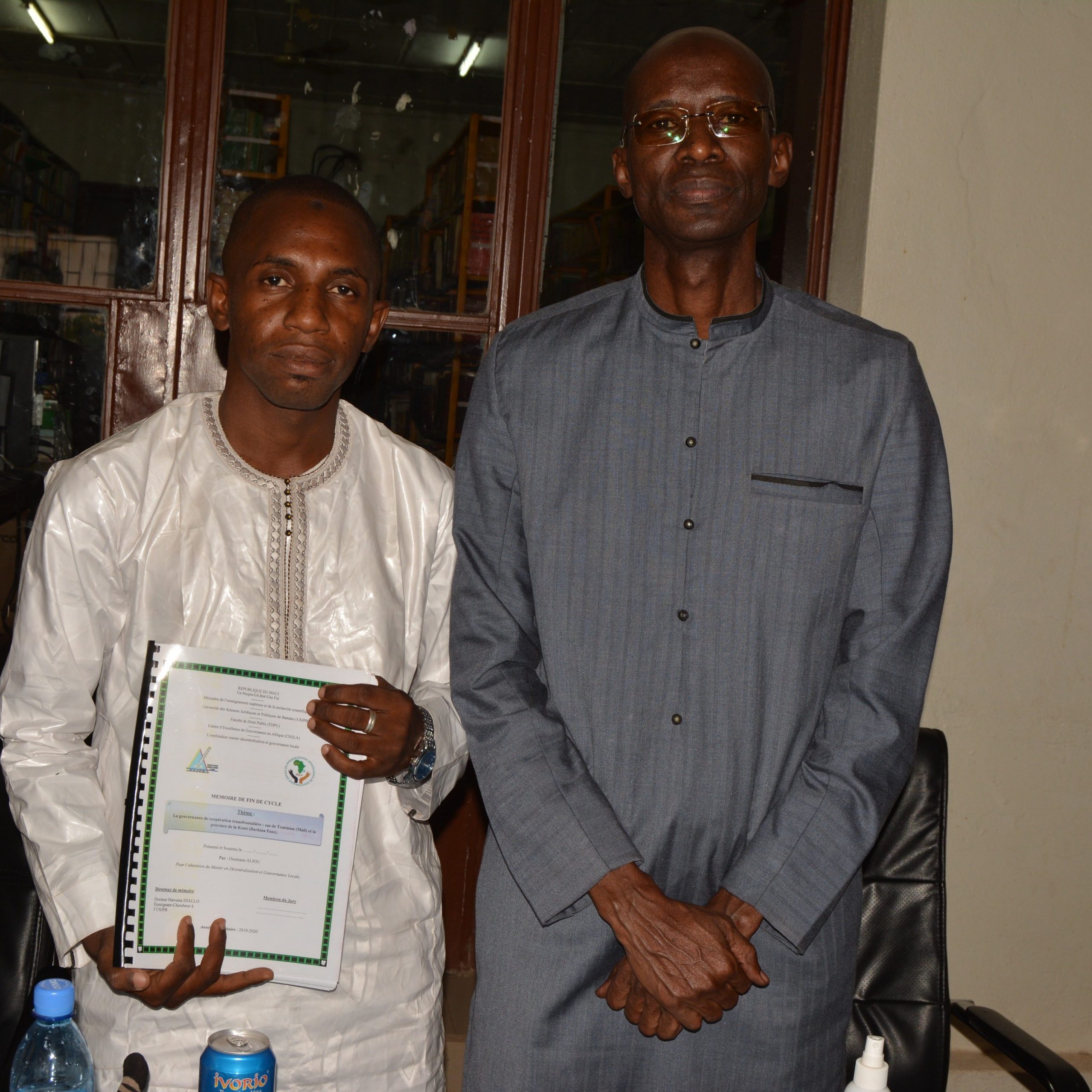
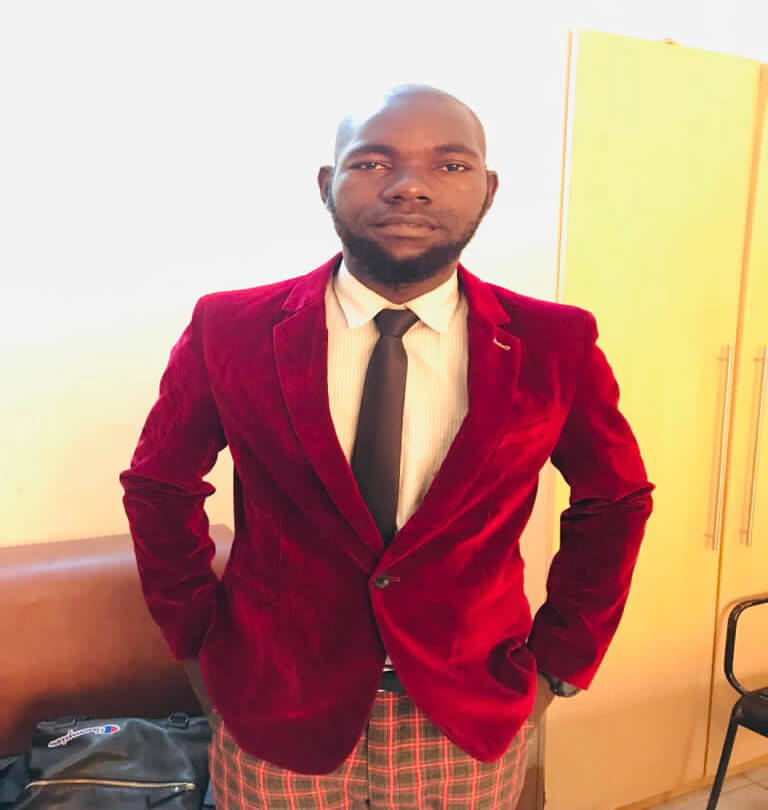
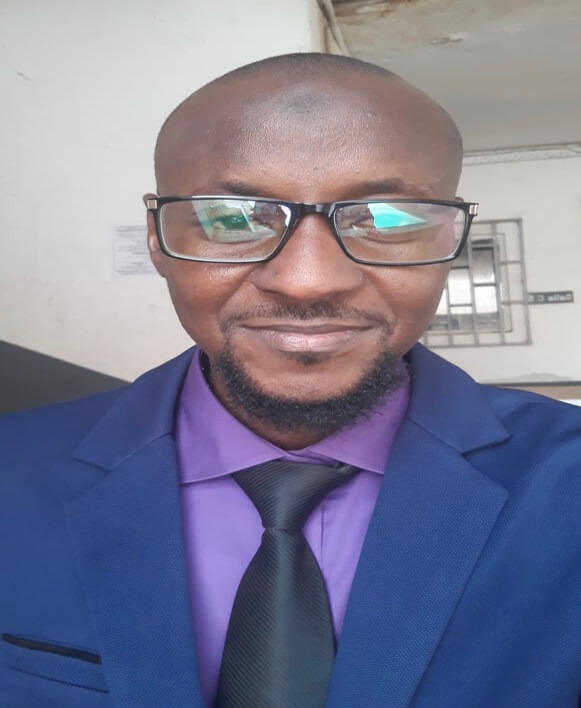
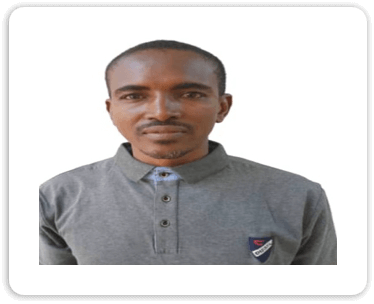

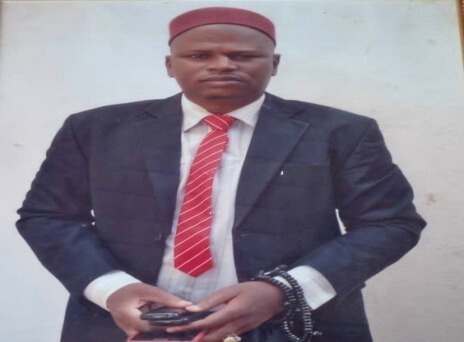



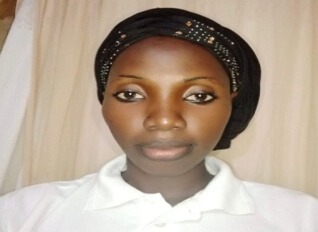
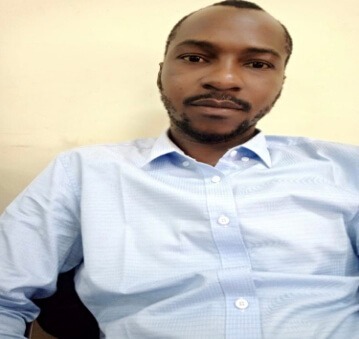
Le 10 juillet 2025 à 16 h 00 CAT, une formation passionnante vous attend. Rejoignez-nous ! Inscrivez-vous à la formation via le lien suivant :…
Les inscriptions pour une nouvelle Formation en Français sur la Création de cours en ligne sont ouvertes. La formation a pour objectif de fournir aux…
L’Université Abdou Moumouni de Niamey accueille cette année la VIIᵉ édition du colloque scientifique international du CEGLA – DAAD, consacré au thème : « Changement…
Le centre CEGLA (Centre d'Excellence de Gouvernance Locale en Afrique) a organisé la 6e édition de son Colloque Scientifique au CESAG à Dakar.
DU 05 AU 07 NOVEMBRE 2024 DAKAR AU SENEGAL Chers universitaires, professionnels et étudiants, Pour le colloque à venir, certaines dates limites ont été modifiées. Il…
DU 05 AU 07 NOVEMBRE 2024 DAKAR AU SENEGAL Chers universitaires, professionnels et étudiants, Depuis quelques années, le Centre d´Excellence de Gouvernance Locale en Afrique (CEGLA)…
Le CEGLA lance un appel d'offre pour la consultation internationale sur la modernisation des supports numériques. Veuillez trouver les informations nécessaires dans le TDR ci-dessous.…
Chers universitaires, professionnels et étudiants, Pour le compte de cette nouvelle année universitaire, le programme African Excellence du DAAD à travers le Centre d’Excellence de…
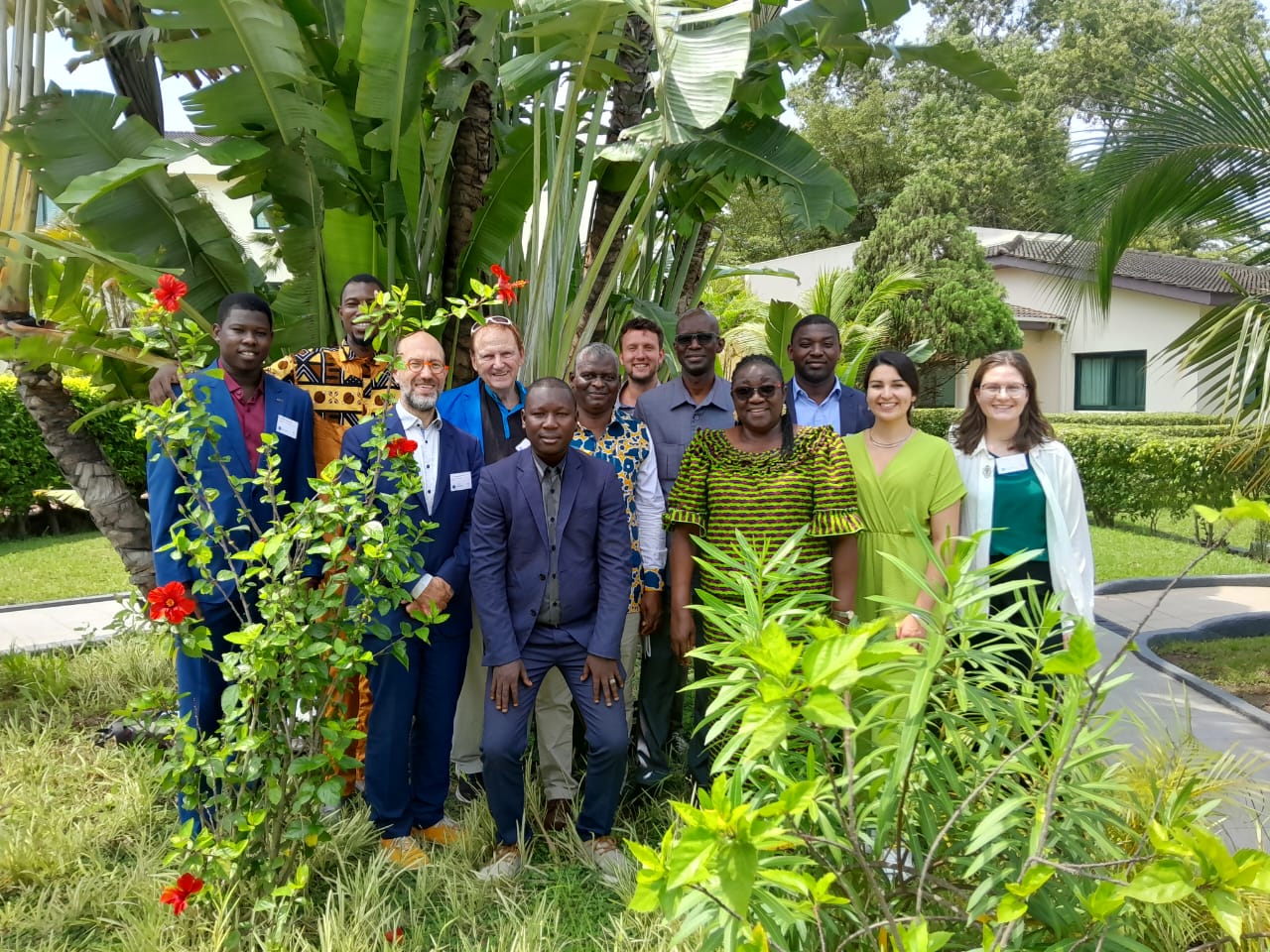
CEGLA delegation at the DAAD network meeting in Accra, September 2023
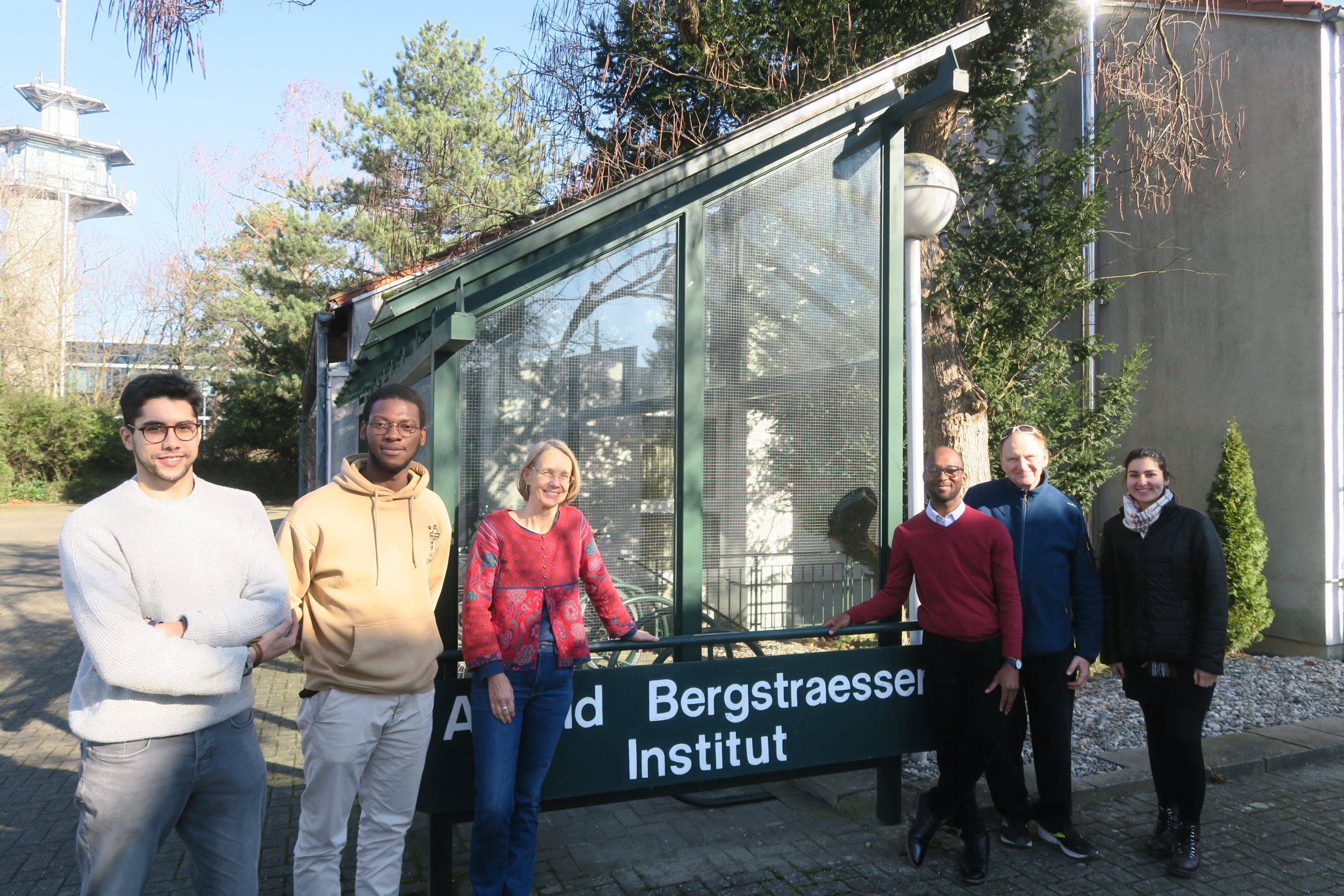
CEGLA network meeting at Arnold Bergstraesser Institut in Freiburg, February 2023
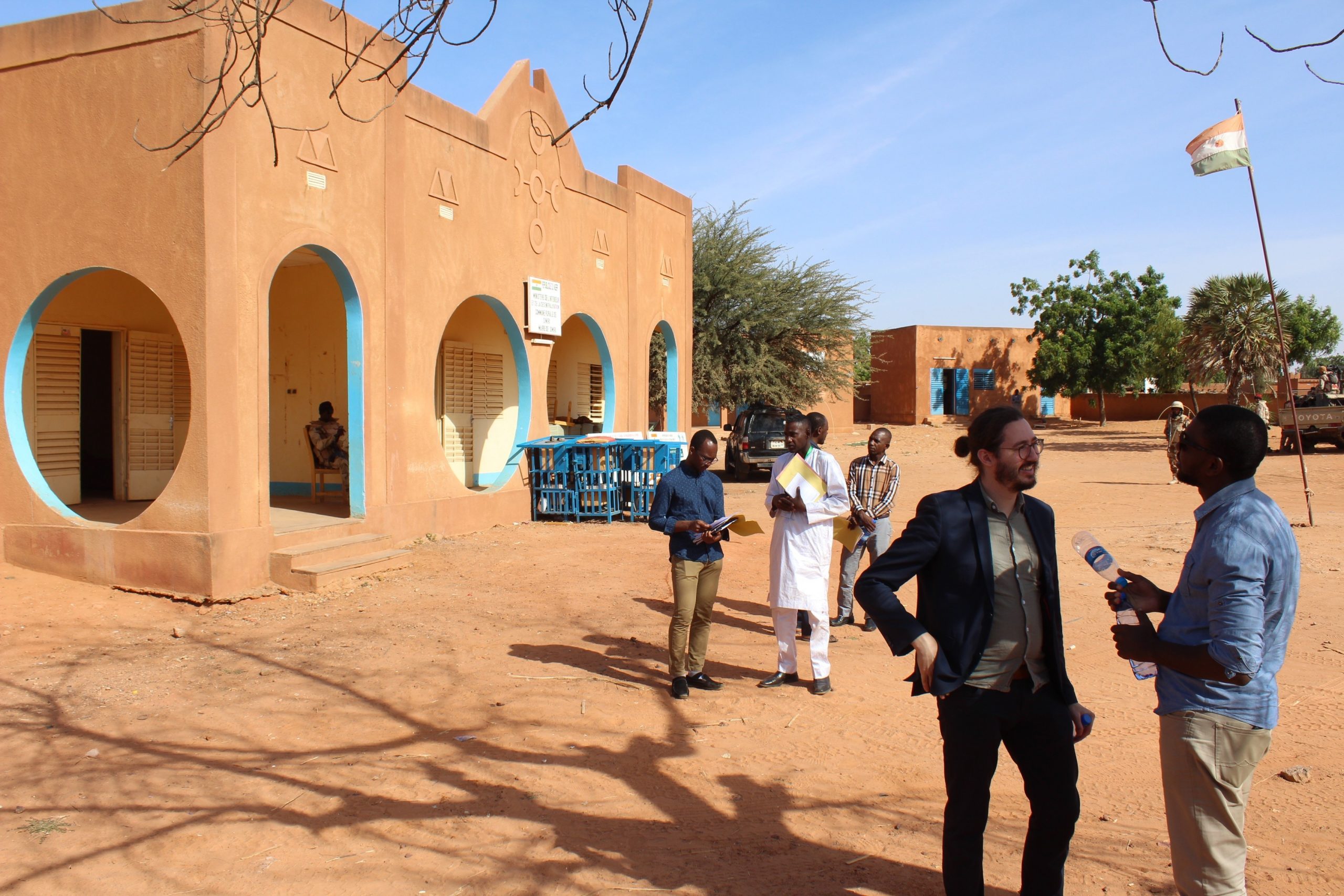
How does administration work in Niger? Visit of the municipality of Simiri, November 2019
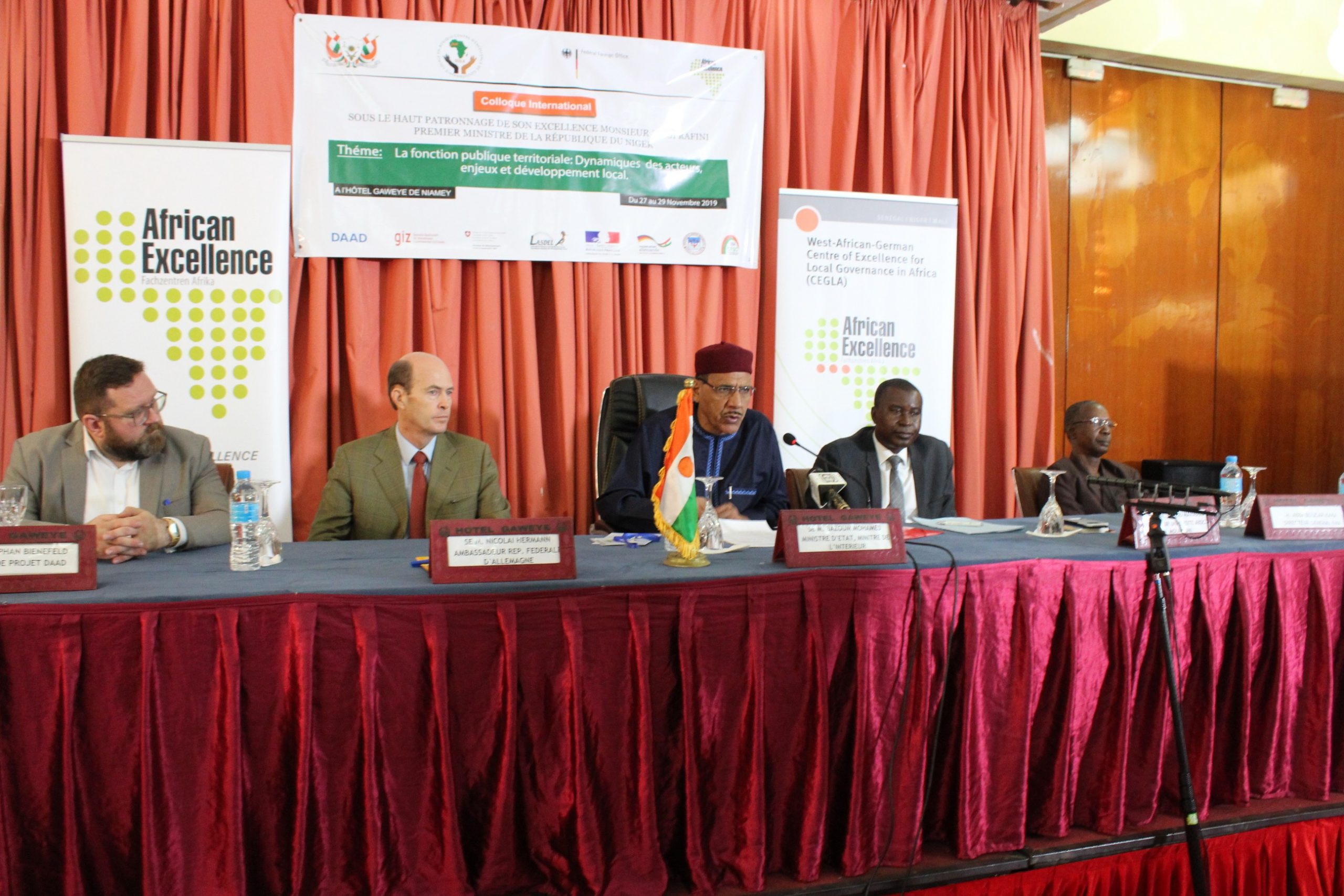
International scientific conference organised by CEGLA in Niamey ,November 2019
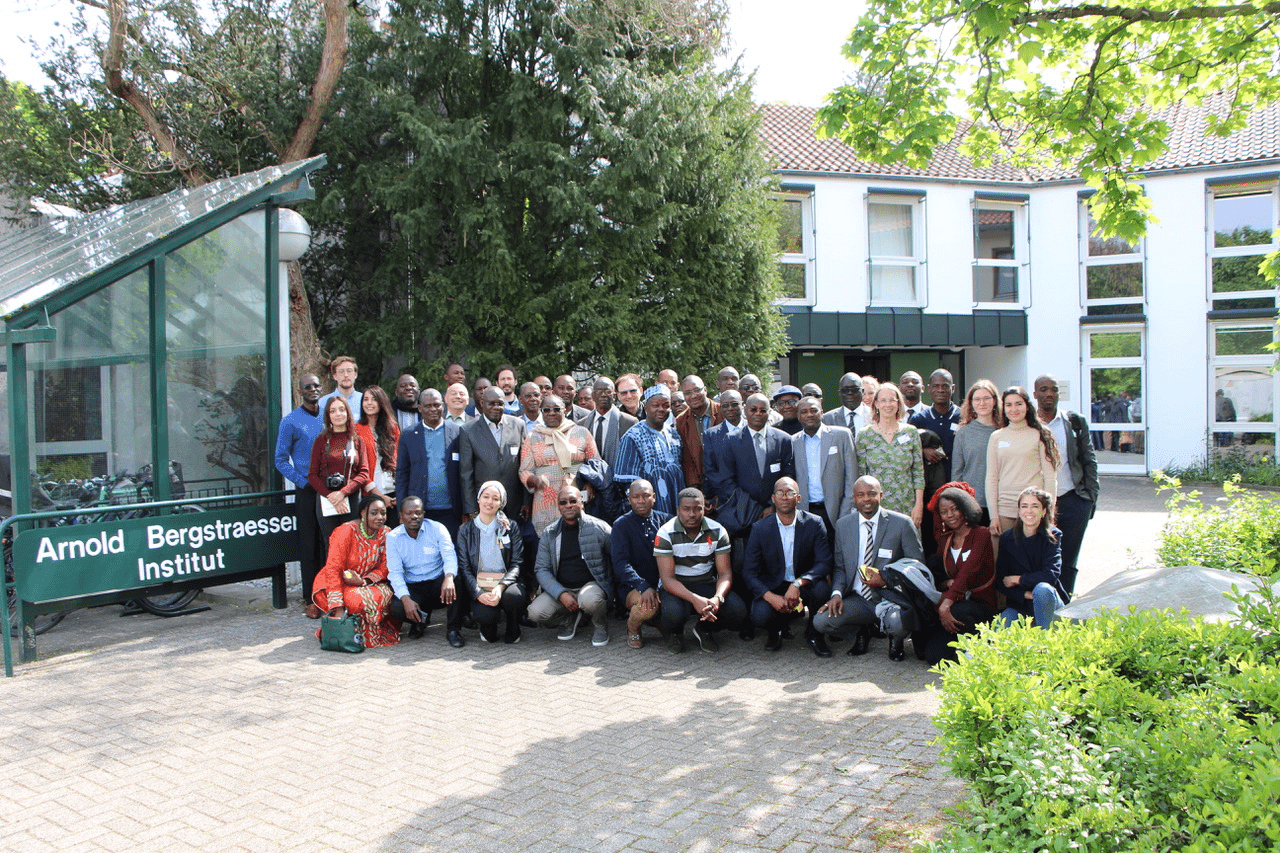
CEGLA meeting at the CEGLA partner Arnold Bergstraesser Institut in Freiburg, June 2019
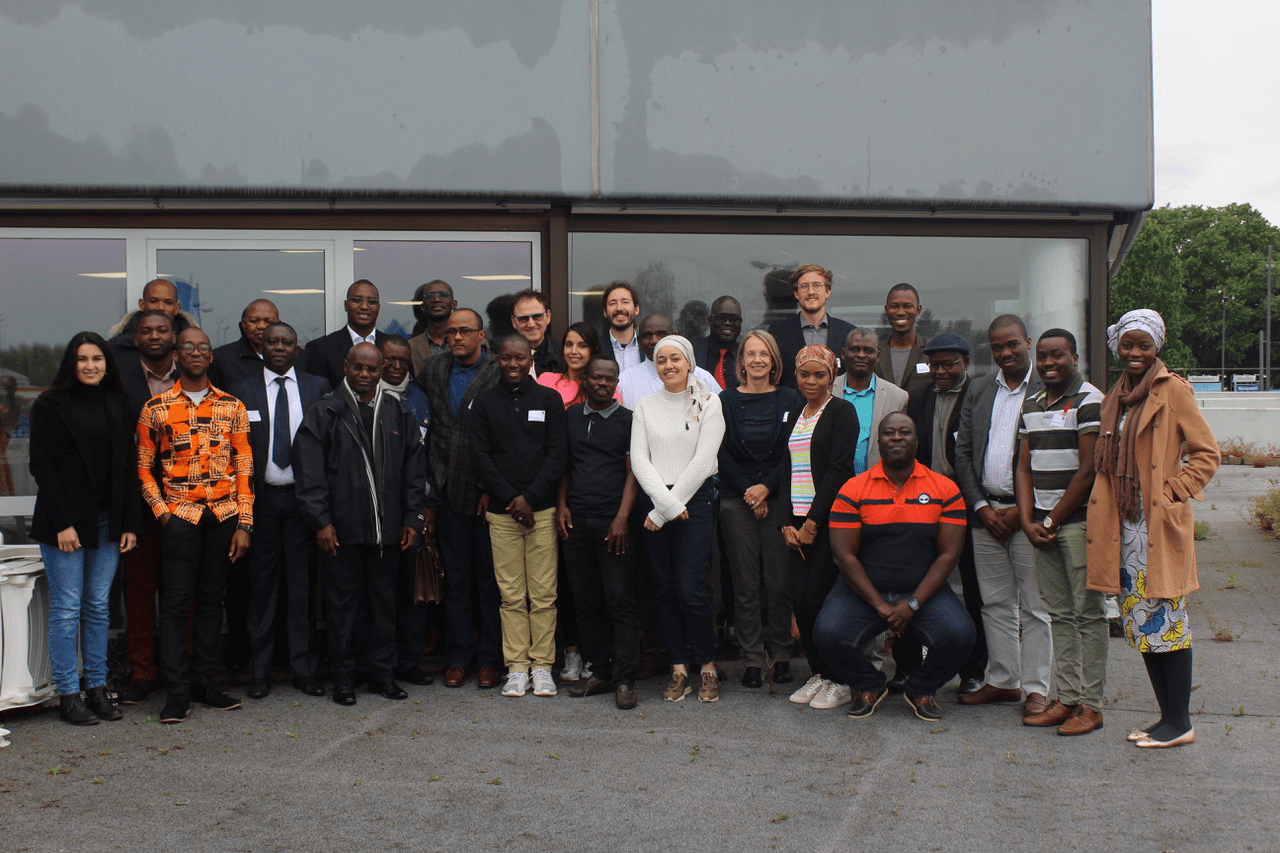
CEGLA Project Meeting in at the University of Applied Sciences in Kehl, June 2019
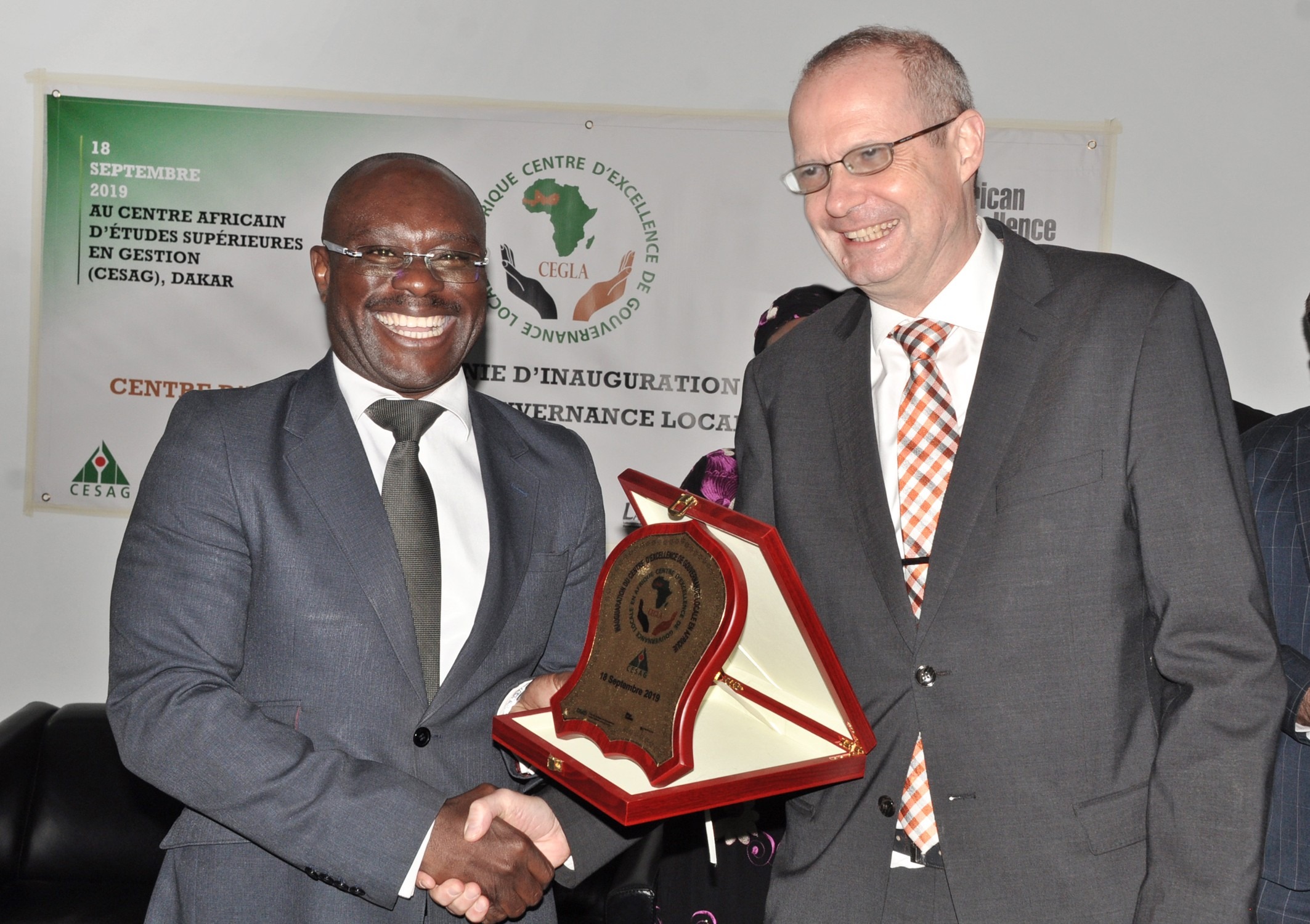
Inauguration of the CEGLA centre in Dakar with Prof. Bayala, General Director of CESAG, and Stephan Röken, Ambassador of Federal Republic of Germany in Senegal
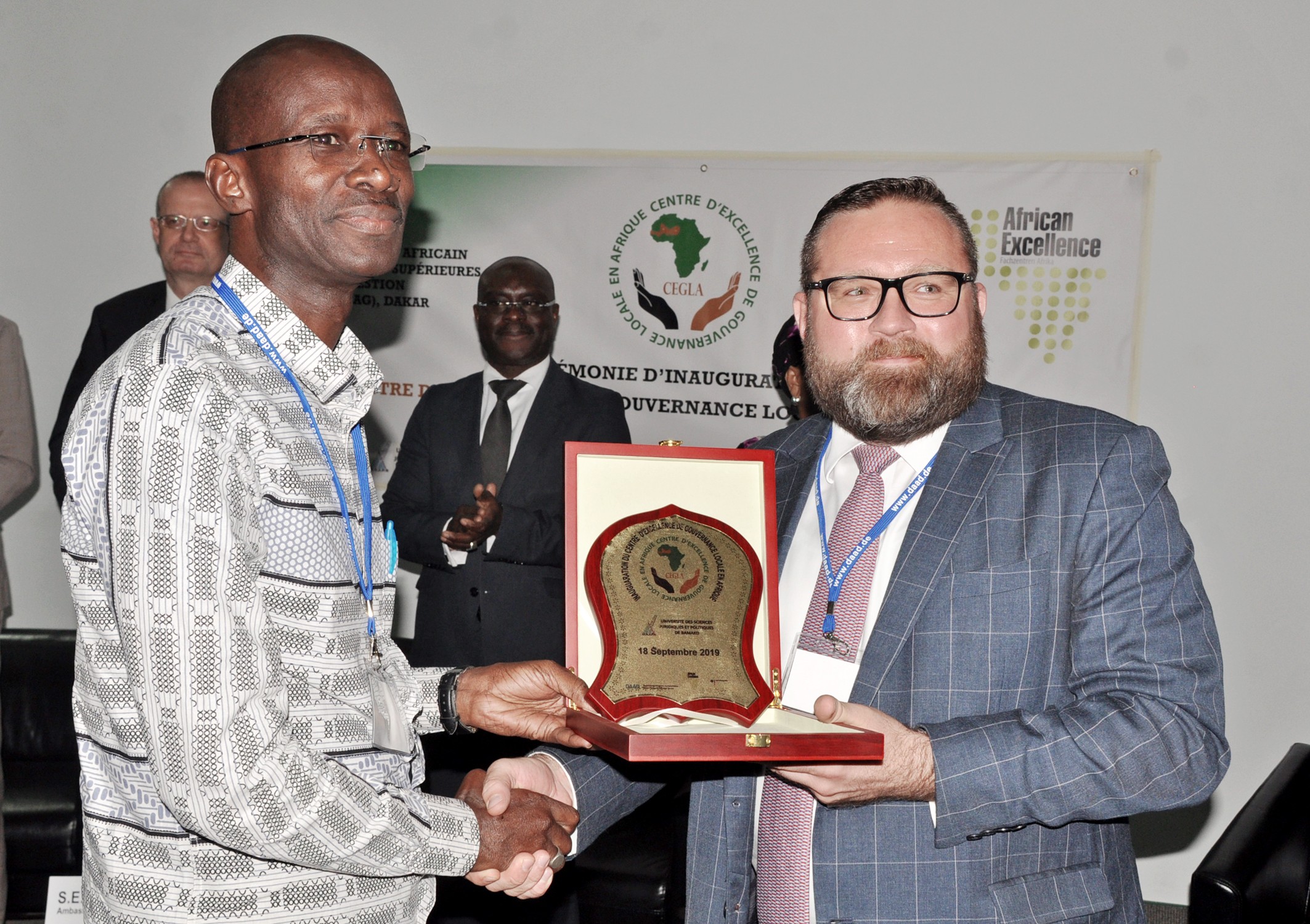
Inauguration of the Centre CEGLA in Dakar with Dr. Harouna Diallo, Project Leader CEGLA at USJPB, and Stefan Bienefeld, Head of Division, Development Cooperation and Transregional Programmes, DAAD
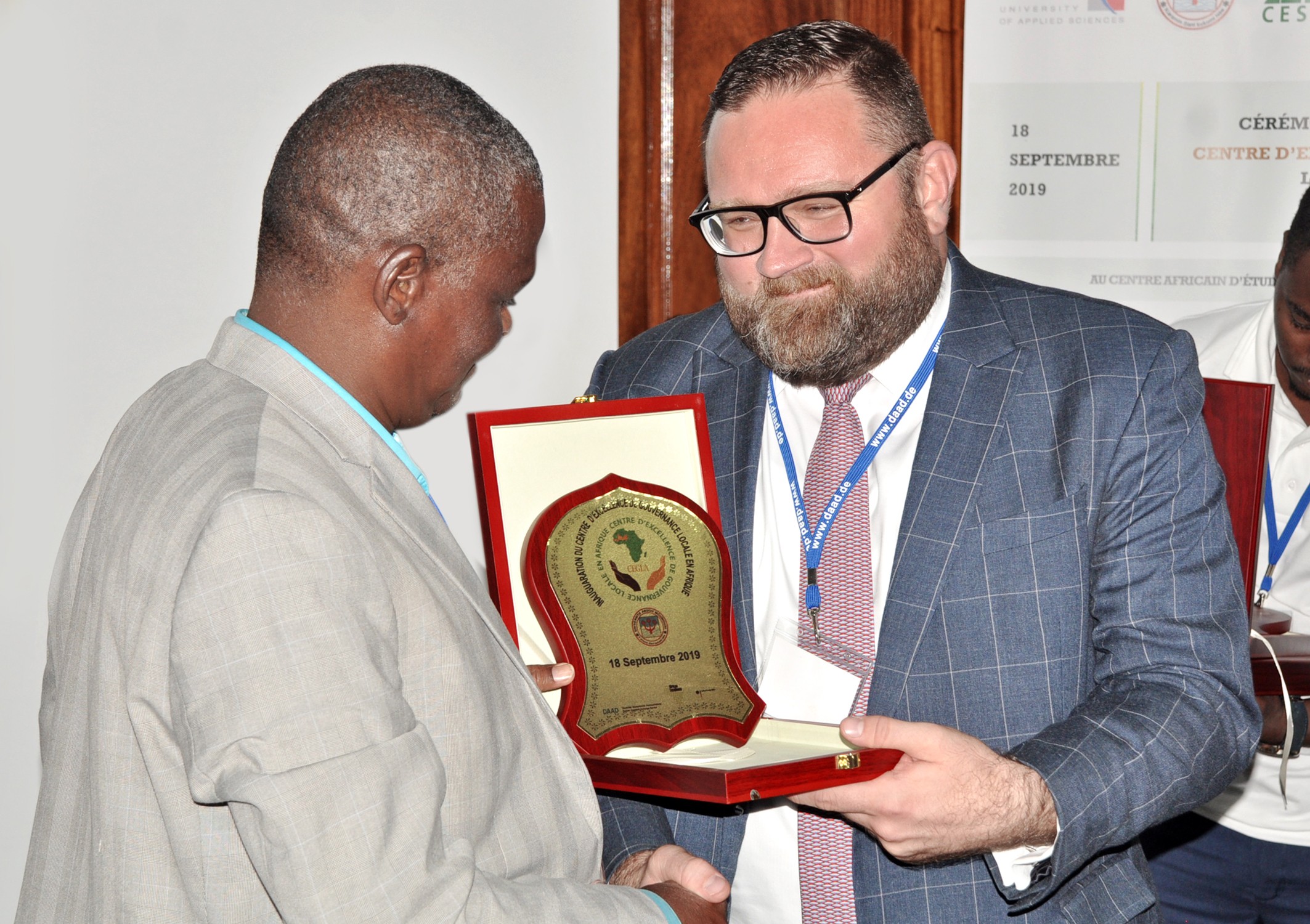
Inauguration of the Centre CEGLA in Dakar with Dr. Mamane Djibo, Project Leader CEGLA at UAMN, and Stefan Bienefeld, Head of Division, Development Cooperation and Transregional Programmes, DAAD
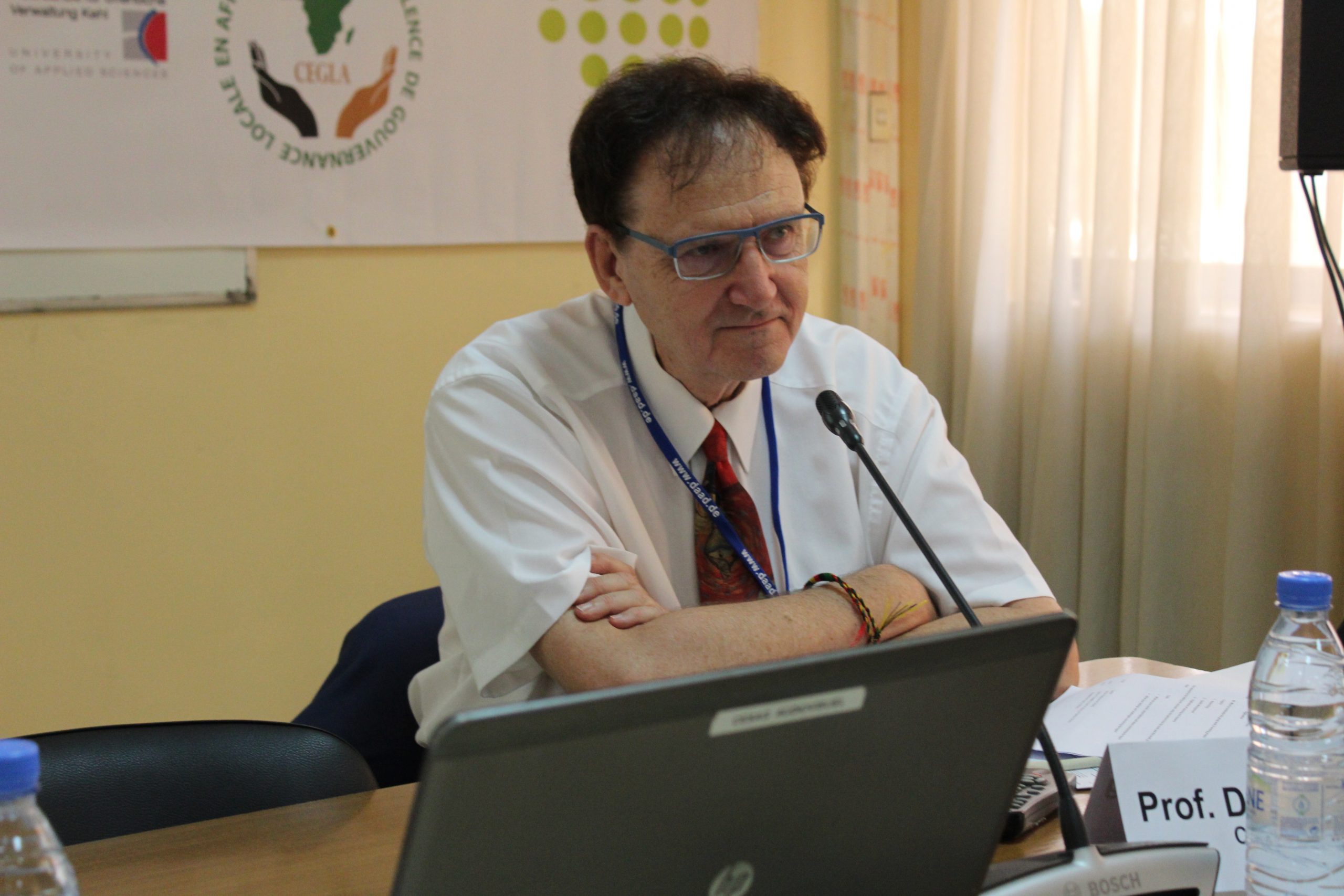
Prof. Dr. Ewald Eisenberg, Project Leader CEGLA
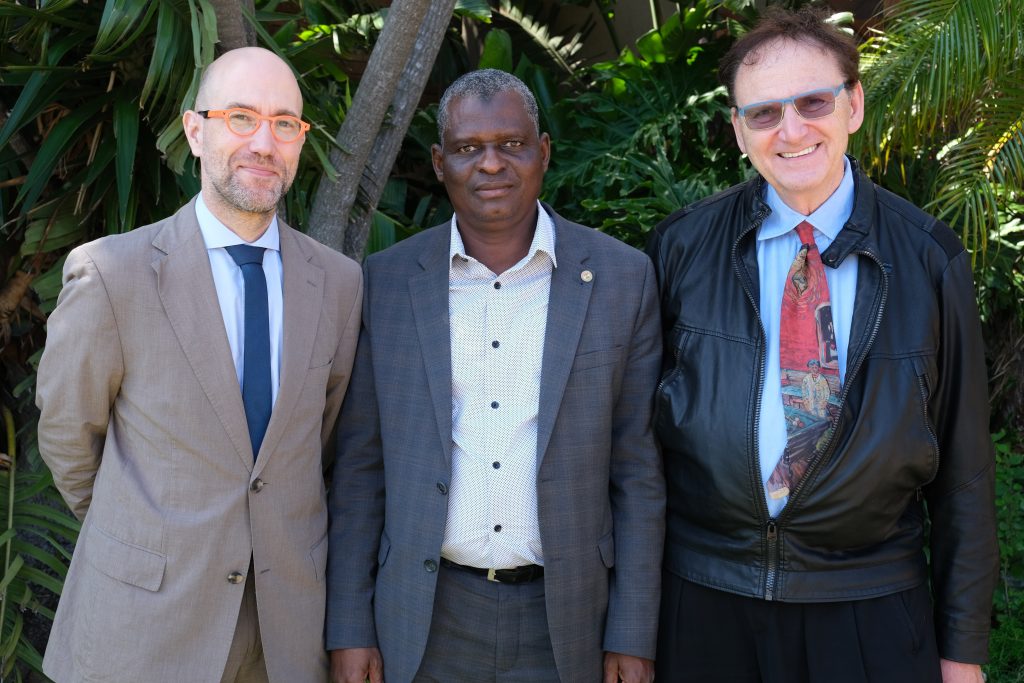
Prof. Dr. Ewald Eisenberg, Project Leader CEGLA, Dr. Mamane Djibo Project Leader at UAMN, Prof. Dr. Andreas Pattar, Deputy Project Leader (f.l.t.r.)
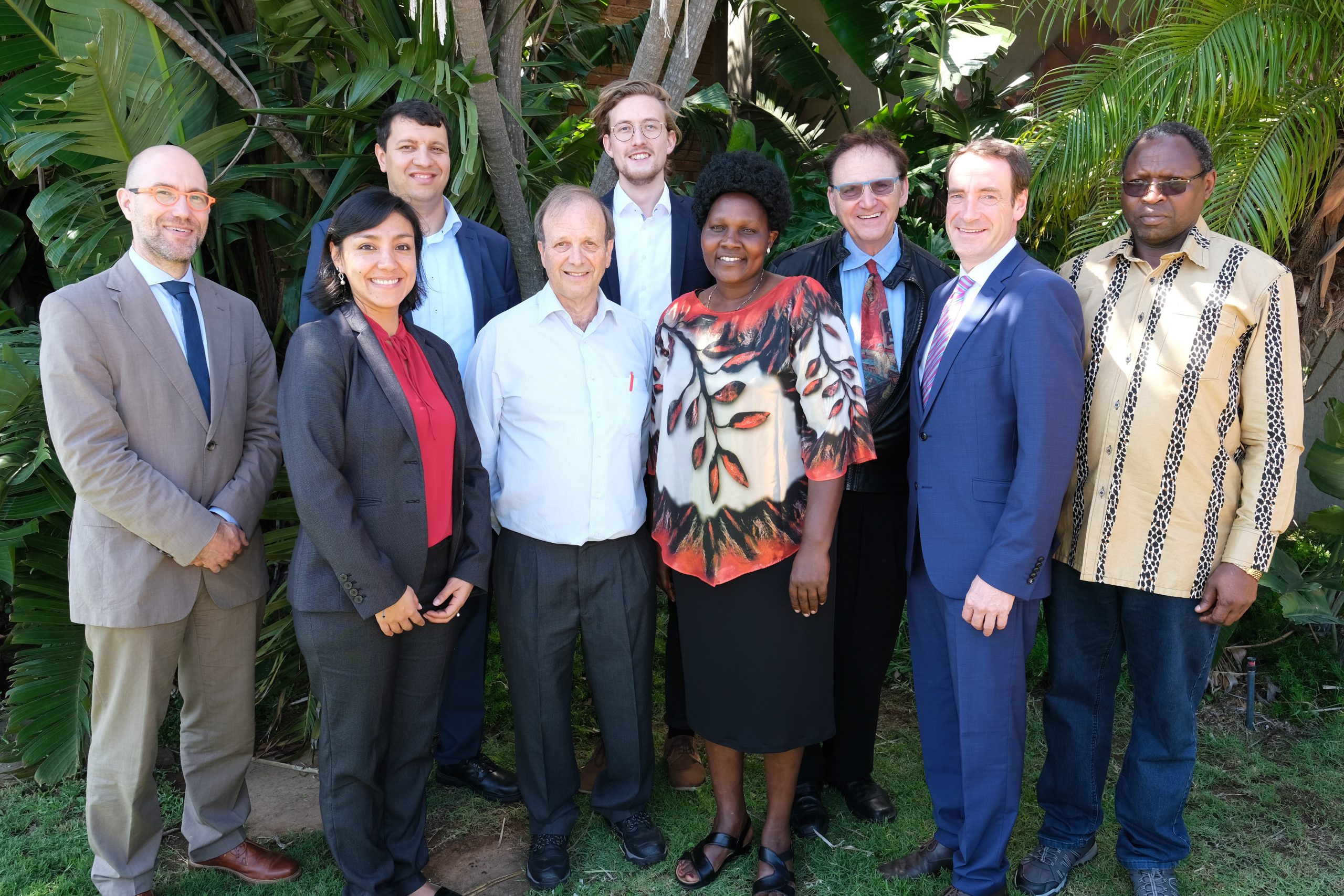
CEGLA as part of the steering committee in the project Digital Initiative for the African Centres of Excellence DIGI-FACE
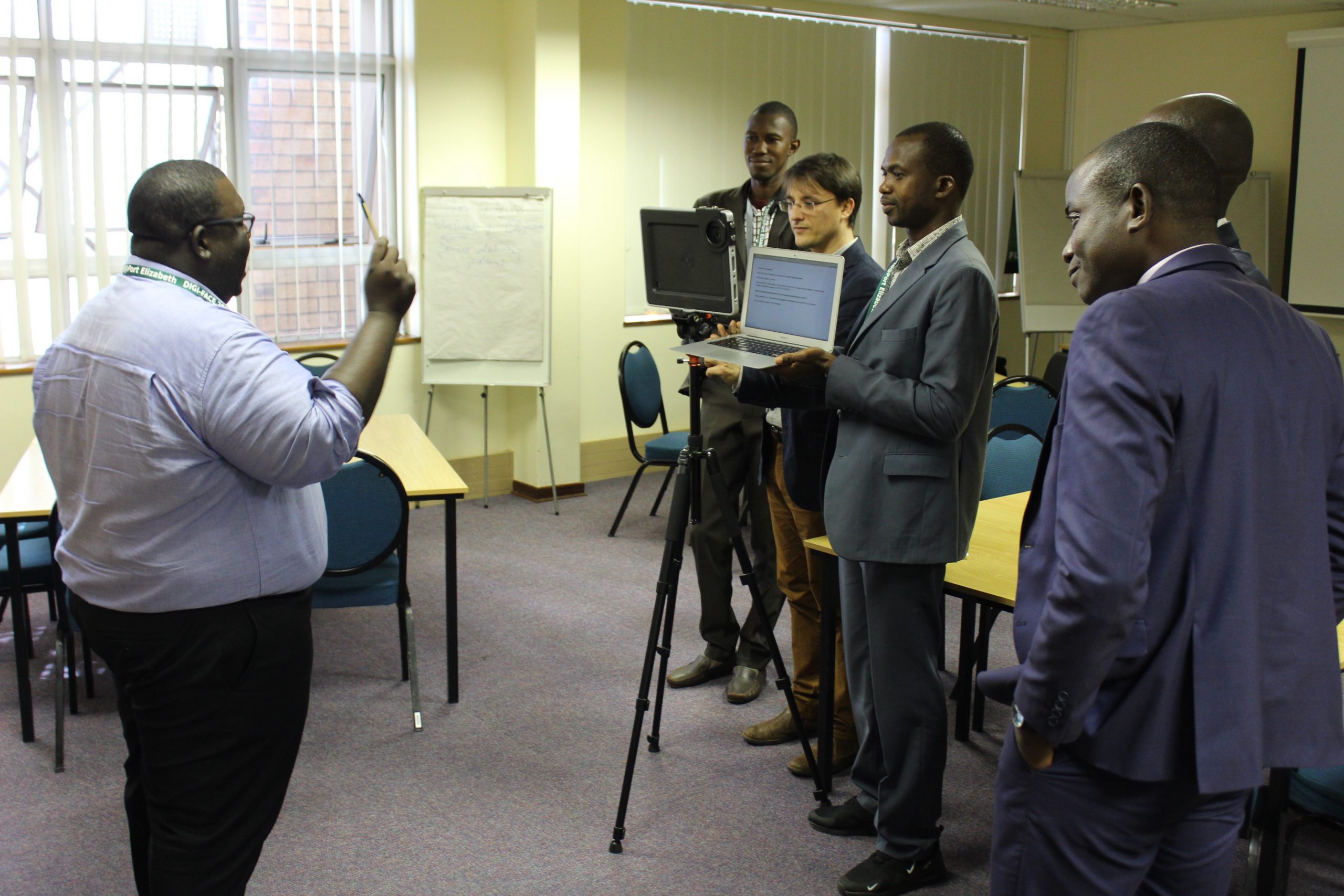
CEGLA members at the Kick-Off Meeting of the DIGI-FACE project
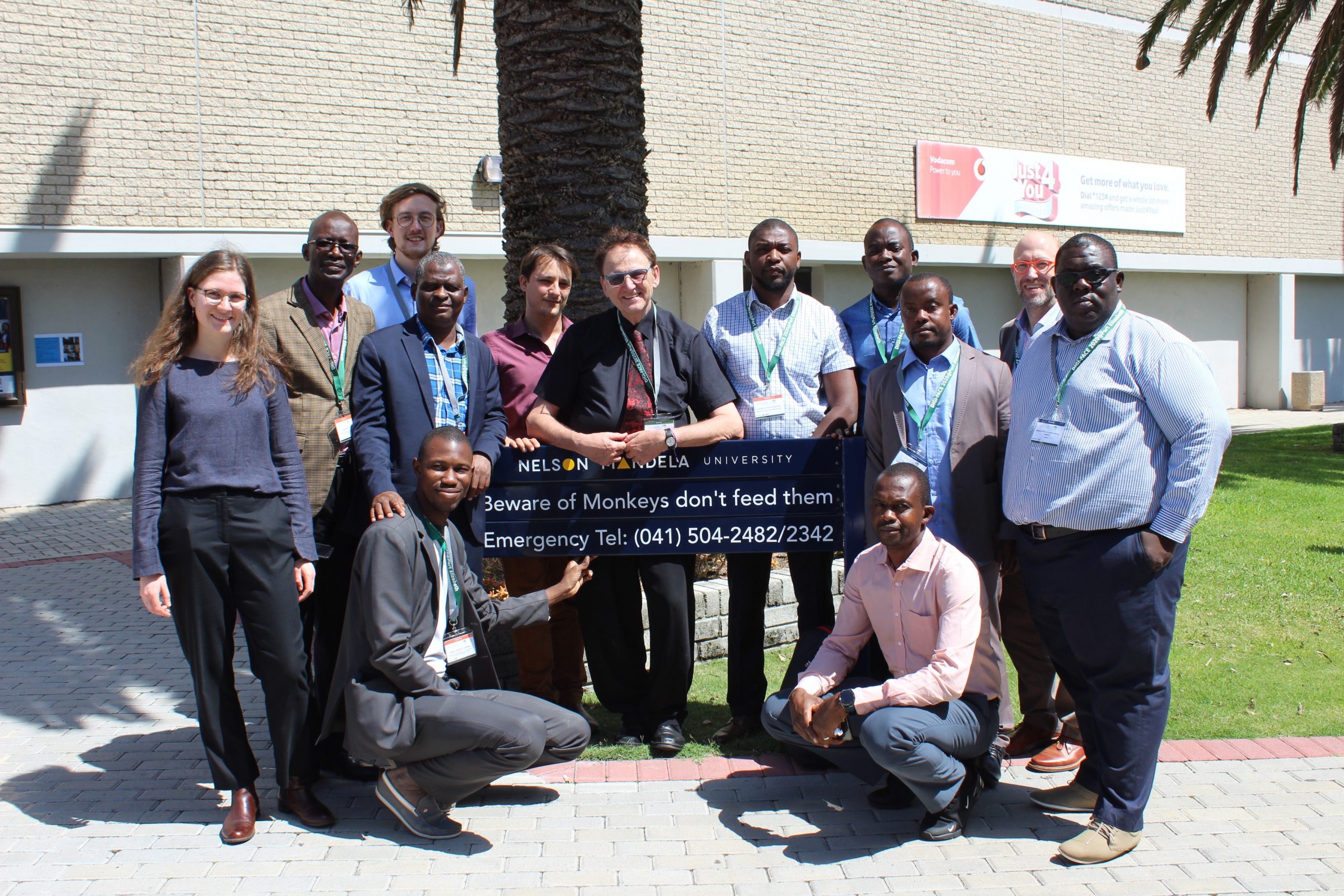
CEGLA members at the Kick-Off Meeting of the DIGI-FACE project
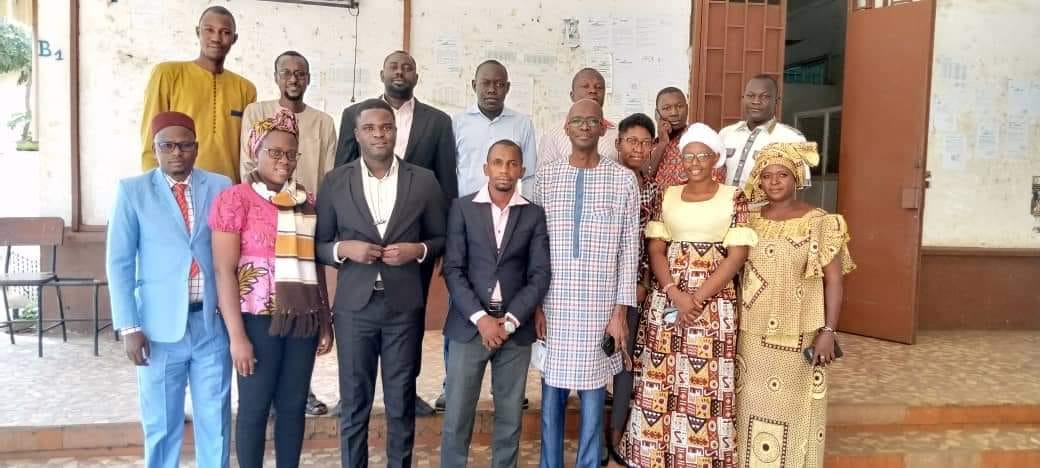
Members of the CEGLA Alumni network
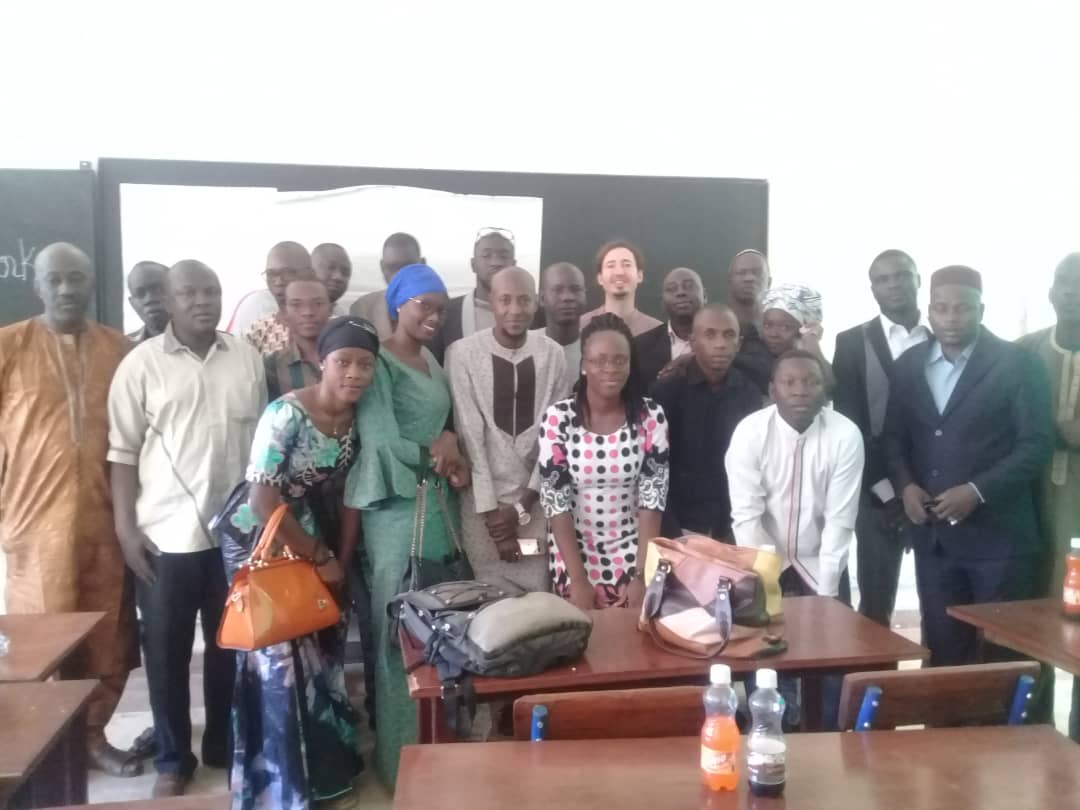
CEGLA Master students in Bamako, Mali
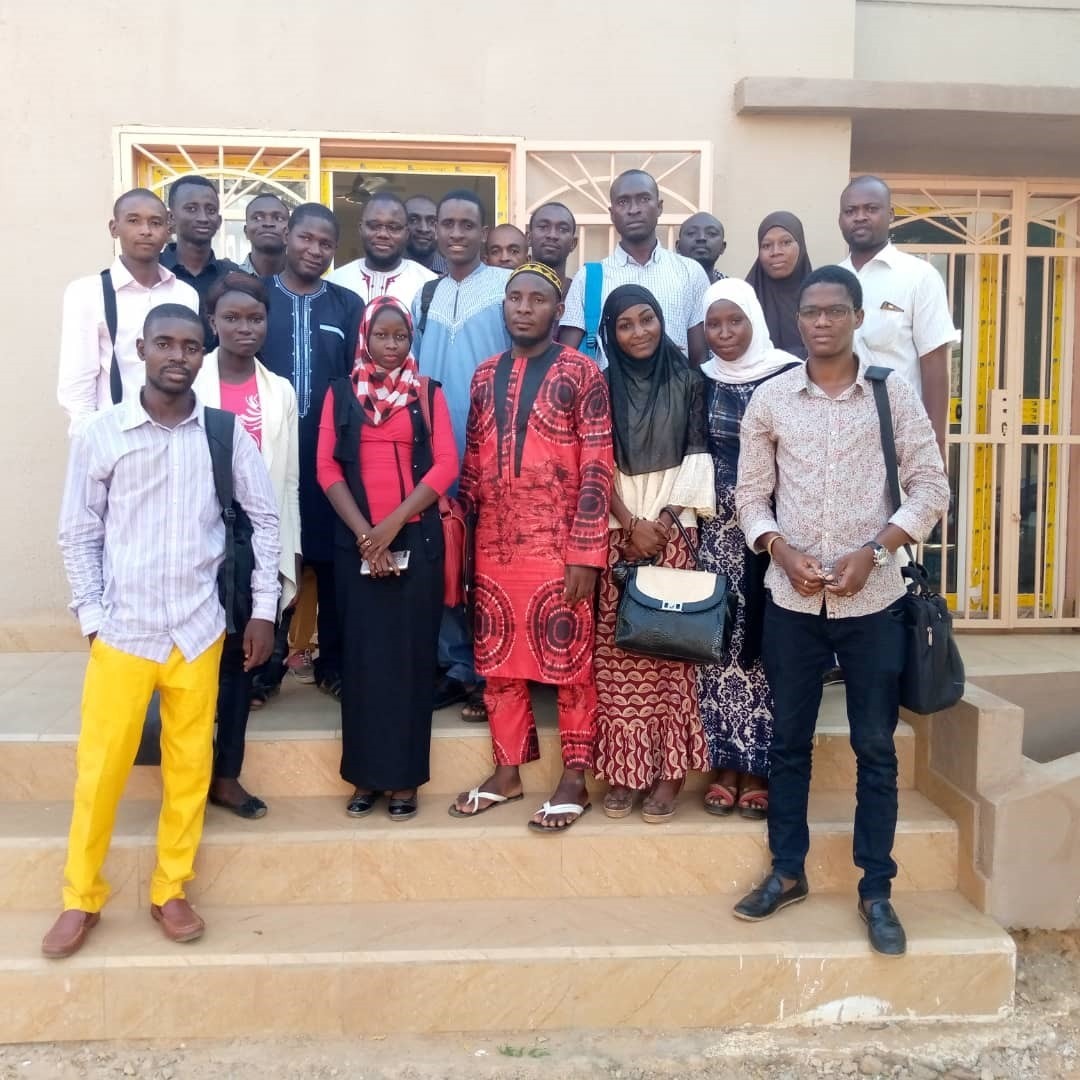
CEGLA Master students in Niamey, Niger
No members currently associated with this centre.

DIGI-FACE – Digital Initative for African Centres of Excellence represented by:
University of Applied Sciences Kehl
Kehl Institute of Applied Research (KIAF)
Projects International Cooperation and Development
Kinzigallee 1, D- 77694 Kehl
+49 7851 894143
https://www.hs-kehl.de/
Contact: digiface[at]hs-kehl.de
Developed by Viewport / WordPress Guys
Opt-out complete; your visits to this website will not be recorded by the Web Analytics tool. Note that if you clear your cookies, delete the opt-out cookie, or if you change computers or Web browsers, you will need to perform the opt-out procedure again.
You may choose to prevent this website from aggregating and analyzing the actions you take here. Doing so will protect your privacy, but will also prevent the owner from learning from your actions and creating a better experience for you and other users.
The tracking opt-out feature requires cookies to be enabled.
Not sure which status you have? Have a look at the list below to identify the right role for your profile.
| Cookie | Duration | Description |
|---|---|---|
| cookielawinfo-checbox-analytics | 7 days | This cookie is set by GDPR Cookie Consent plugin. The cookie is used to store the user consent for the cookies in the category "Analytics". |
| cookielawinfo-checbox-functional | 7 days | The cookie is set by GDPR cookie consent to record the user consent for the cookies in the category "Functional". |
| cookielawinfo-checbox-others | 7 days | This cookie is set by GDPR Cookie Consent plugin. The cookie is used to store the user consent for the cookies in the category "Other. |
| cookielawinfo-checkbox-necessary | 7 days | This cookie is set by GDPR Cookie Consent plugin. The cookies is used to store the user consent for the cookies in the category "Necessary". |
| cookielawinfo-checkbox-performance | 7 days | This cookie is set by GDPR Cookie Consent plugin. The cookie is used to store the user consent for the cookies in the category "Performance". |
| viewed_cookie_policy | 7 days | The cookie is set by the GDPR Cookie Consent plugin and is used to store whether or not user has consented to the use of cookies. It does not store any personal data. |
